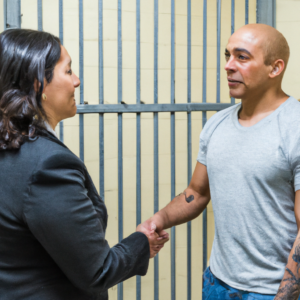
Another Chance at Justice
Post-conviction relief is a highly specialized and often confusing area of the law. Though sometimes referred to in error as part of the appeals process, post-conviction applications are known as a “collateral attack” on an inmate’s conviction. An individual can only seek post-conviction relief after the appeals process ends. Significantly, an inmate’s rights during the post-conviction process differ considerably from those they have at the trial and appellate stages.
First, the U.S. Constitution’s 6th Amendment right to an attorney does not exist at the post-conviction stage. Not having the Constitutional right to an attorney means that those wishing for legal representation during the post-conviction process must seek private counsel.
Second, the inmate no longer enjoys the presumption of innocence that they enjoyed at the trial stage during the post-conviction process. Instead of the prosecution having the burden of proving your guilt beyond a reasonable doubt, you now take on the burden of proving your innocence.
The arguments inmates can make during the post-conviction process are also extremely limited. A trio of legal terms of art lead to this being the case:
- Finality — the concept that legal proceedings must end at some point, and courts should give deference to decisions made by juries or other courts;
- Waiver — the concept that legal issues not brought to the court’s attention during earlier stages have been purposely waived by the defendant, thereby preventing them during post-conviction;
- Res Judicata — the concept that defendants can not pursue matters already decided by a court.
Wrongful Conviction
To be successful at the post-conviction stage, an inmate must convince the court that they were the subject of a wrongful conviction — this could mean that the inmate is either 1) factually innocent of the crime they were convicted of or 2) legally innocent of the crime they were convicted of. Many things can transpire during a criminal investigation or conviction that lead to a wrongful conviction. Some of the more common reasons are:
- Mistaken witness identification
- Perjury or false accusations from witness
- A false confession
- False or misleading forensic evidence
- Prosecutorial misconduct
- Ineffective assistance of trial or appellate counsel
Research has shown that wrongful convictions are usually the result of a confluence of two or more of the above reasons.
Post Conviction Investigations
Post-conviction investigations can be incredibly in-depth. Our Oklahoma City post-conviction attorneys begin these investigations by obtaining and reviewing all information pertinent to your case — from the date of the offense, through the appeals process, and any earlier post-conviction or federal habeas corpus proceeding you may have undergone. Investigations include a review of trial transcripts, appellate briefs, police reports, forensic reports, and other associated documents. The post-conviction investigation will also likely entail correspondence and interviews with those involved in the original case, including prosecutors, former defense attorneys, experts, and lay witnesses.
During the post-conviction investigation process, an attorney aims to discover viable claims of innocence and construct a viable litigation strategy. The strategy almost always comes from newly discovered evidence of innocence that wasn’t known or used during earlier stages.
Oklahoma Post-Conviction Investigation Attorney
It can be easy to lose hope in the criminal justice system following a failed trial and appeal. But if you or a loved one is behind bars and are looking for a second chance, you may need help from an Oklahoma City post-conviction attorney with Wirth Law Office. Our attorneys will scour your case file and seek every possible way to get the relief you seek.
Initial Consultation
For a initial consultation with an Oklahoma City post-conviction attorney, call 918-932-2833. You can also submit an email question from the top right corner of this page. We will respond to all inquiries as soon as possible.
